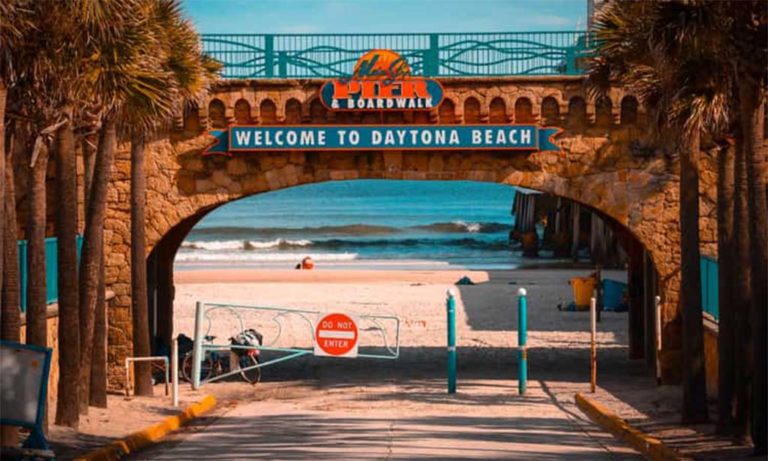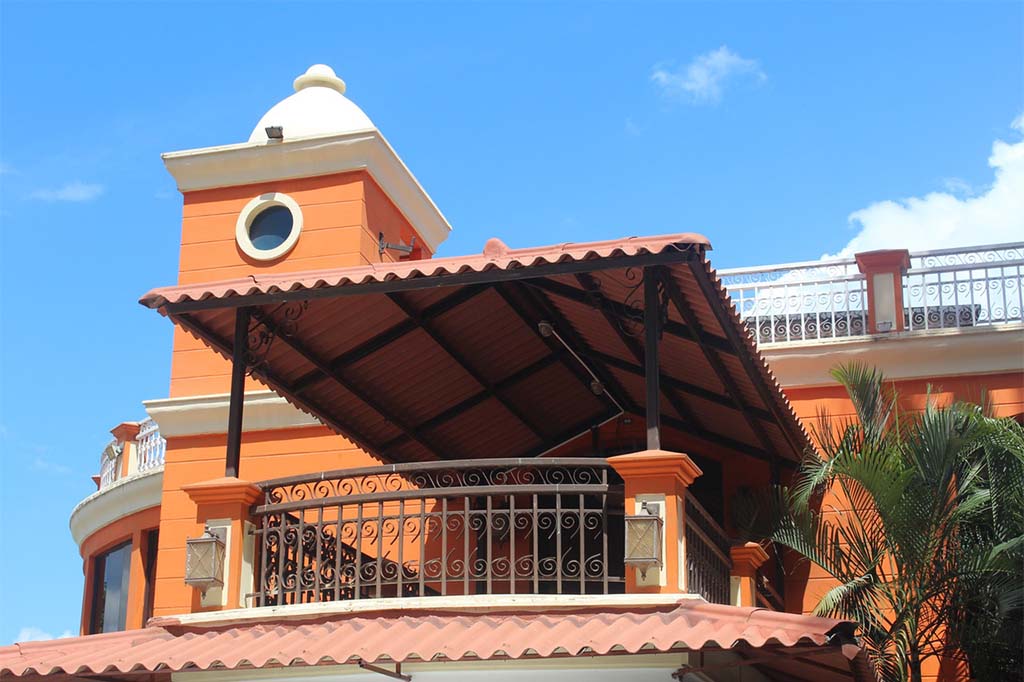Source: Deposit Photos
Having decided to buy a holiday home in Florida to enjoy its exotic beaches and sceneries, you may ask: “Other than purchasing the house, are there any additional costs I might need to pay before owning the home?”
Well, yes, there are a bit more costs to cover. These are known as closing costs.
But not to worry, as you’ll soon see, there are not so great expenses such that you would even consider letting go of a choice property to avoid paying them.
This post discusses the average closing cost in Florida.
What are Closing Costs?
Closing costs are the fees that home buyers and sellers typically incur while completing a real estate conveyance. Otherwise known as settlement fees, they are the various expenses paid in addition to the down payment to finalize a transfer from the seller to the buyer.
Generally, closing costs can range anywhere from 2-5 % of the total loan amount and are payable whether you’re buying a new home or refinancing your current mortgage.
Buyers pay these fees in advance; in other words, they cannot be easily rolled into your loan balance in the same way that your down payment can.
Closing costs involve quite a variety of fees and expenses, such as:
- Credit report
- Home appraisal and survey
- Home inspection
- Title insurance policy
- Title search, etc
How Much Are Closing Costs in Florida?
According to a report on the closing costs data for 2021, the average closing cost in Florida is about 2.32 percent of the final purchase price.
The average house in Florida is between $348,000 and $368,560, so the middle range of closing costs is $8,074 – $8,551.
Note that these prices will inevitably be lesser for less expensive homes. At the same time, they will be higher for million-dollar mansions such as those you would regularly see in costly locations such as Tampa Bay or Miami.
Source: Pexels
If you are talking about a $3,000,000 home in Tampa, you could be looking at an estimated $69 000 in closing costs. A $10 million Miami mansion in the nicest area of town will be looking at attracting $232,000 in closing costs.
Meanwhile, if you are more interested in a beautiful home in Pelican Bay for under $300,000, you’re more likely to spend under $6,960 in closing costs.
Also, note that other factors such as the amount paid upfront, the percentage of the loan, and the various conditions imposed by the bank on the sale can all have an impact.
The amount of closing costs in Florida depends on the loan type, the home’s location, the amount of the down payment, and the loan amount. Be sure to ask your mortgage lender what the closing costs would involve.
Who Pays for Closing Costs in Florida?
In Florida, just as n many other states, neither party is responsible for the entire closing cost, including fees, taxes, insurance, and other expenses.
The buyer generally pays between 3% and 4% of the loan’s valuation and is responsible for most of the fees and taxes.
The seller typically pays between 5% and 10% of the home’s sale price. Closing costs vary by county as well.
Typical Buyer Closing Costs in Florida
If you’re preparing to buy a house, there are some expenses you would do well to expect to pay. The lenders and other third-party entities often levy these costs.
Lender Fees
Lenders typically charge fees for services such as skills and time. You may also be required to pay for certain documentation in some cases. Some of the lender fees charged to a buyer are as follows:
Credit Report
Your credit score is a three-digit number used to determine your creditworthiness. When appraising you for loans and mortgages, lenders often look at it through a credit report.
A lender will typically charge you to go through your credit report twice before making the loan. First, in the initial stages when you’re getting pre-approved for a loan and then just before closing to verify that you are still credit-worthy.
It typically costs around $50 to pull your credit reports from the central reporting bureaus.
Loan Origination
This is a fee that a bank charges before making a loan. This fee may include processing an application, underwriting and funding the loan, and other administrative tasks. In Florida, the loan origination fee would typically be a maximum of $250 plus 10 percent of the entire mortgage loan.
Mortgage Points or Discount Points
These are fees paid directly to the lender at the time of closing in exchange for a lower interest rate (sometimes referred to as “buying down the rate”).
Levies &Third-Party Fees
These include fees paid to county authorities and other third parties involved in the property purchase, such as closing attorneys, appraisers, surveyors, and insurance companies. Some others are:
Recording Fees
At the end of the transaction, you’ll pay the recording fees.
There is a one-time charge for recording your mortgage documents in Florida, which varies depending on the document’s volume.
The national average for recording fees is $125, although your county may charge less or more.
Home Appraisal Fee
Your lender may require that you get a house appraisal before they are willing to lend you big bucks to buy a property. This is to ensure that their investment is safe. For a certified appraiser in Florida, the average cost of a house valuation is between $300 and $500.
Home Inspection
Most lenders typically require a home inspection exercise in addition to a home appraisal to ensure that the house you’re about to buy is stable and in good condition.
Survey fee
This is a fee paid for the survey on a property that is taken to show if the land has any defects, encroachments, or easements that will prevent a buyer from making future changes to it. The survey will also confirm that the parcel size is what the buyer is expecting.
Source: Unsplash
Typical Seller Closing Costs in Florida
If you’re preparing to sell a house, these are some expenses you would do well to expect to pay.
Realtor Commission
After the sale, this is the percentage that a seller pays if they list their property with a real estate agent. Sellers list their properties with realtors because they can sell their property faster and at a reasonable valuation for a modest commission.
For instance, if a home is sold for $1,000,000 and the contract with the real estate agent specified an 8% commission, then it would mean that the fee would be $80,000, which only slightly reduces the seller’s income to $920,000.
Title Search
Source: Pexels
A title search is typically the seller’s responsibility. The search confirms that he is the property’s legal owner and verifies that there are no unsettled liens against the title.
A lender will typically require that this is provided before money and documents are transferred from the seller to the buyer.
Title Insurance Policy
The seller frequently has to pay for the costs of the policy issued to the new homeowner. The primary purpose of title insurance is to indemnify the buyer against claims such as homeownership disputes and other unforeseen or unknown issues during the conveyance process.
Documentary Stamp Tax
Otherwise called the “transfer tax” or “excise tax,” this tax is charged by the State to the seller upon conveyance of ownership. The amount depends on how much the house costs and what county it is in.
In Florida, the transfer tax on real property is $.70 per $100 of the transfer fee. An exception is Miami-Dade County, where the rate is $.60 per $100 when the property is a single-family residence. If the Miami-Dade property is not a single-family residence, the transfer tax is calculated as $.60 plus a $.45 surtax per $100.
Outstanding Payments Owed
The seller must settle all outstanding balances of all liens on the property when the transfer is closed. This includes outstanding homeowners association dues, utility bills, and property taxes.
How to Calculate Closing Costs as a Florida Buyer?
To estimate the amount you’ll pay in closing costs as a buyer in Florida, multiply the price of your home by the typical closing cost percentage of 2.3%.
For example, Daytona, Florida’s current median listing price is $260,000. If you multiply this by the typical closing cost percentage of 2.3%, you’ll find that your closing costs will be less than $5,980.
This is because it is not the buyer who foots all closing costs in Florida. Thus, the fees you would be paying would generally be less than 2.3% of the purchase price.
The best way to get a more accurate closing cost estimate is to meet with your mortgage advisor. They can punch up these numbers more accurately depending on the type of home you’re interested in, mortgage requirements, taxes, etc.

Bottomline
Potential homeowners often ignore closing costs when calculating the cost of getting a home.
When looking to purchase a home in Florida, do not be caught off guard by these unavoidable incidental payments and always have it at the back of your mind that there is always just a bit more to pay even after the purchase price.
Thankfully though, the potential buyer will not get knee-deep in extra payments as the closing costs in Florida are not too steep, and what’s more? The buyer does not get to pay it all; the seller has got his fair share to pay.
Purchasing or selling a home can be pretty stressful for both the buyer and the seller, as it may be a hassle to pause one’s regular life and go house-hunting or looking for buyers.
Thankfully, buyers looking to purchase a home need not contend with that as I am here to help your home search easier. Similarly, sellers can always list their property for sale with me and find buyers.
If you need any help buying or selling real property in Daytona, Florida, don’t hesitate to contact me today.






